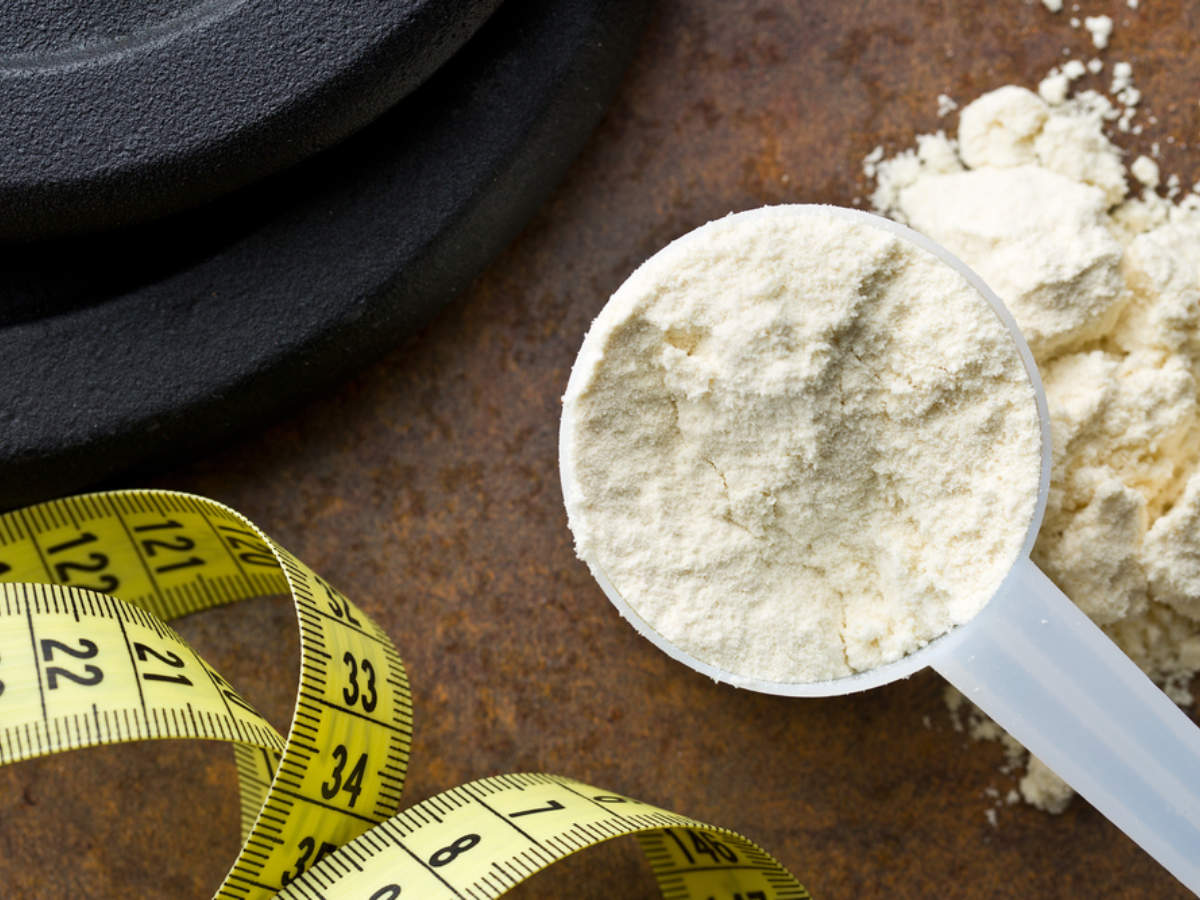

The most common place where you will hear about protein is by the bulky weight machines in a gym. You will see people in the gym drinking their protein shakes after completing their workout because they believe that their expensive over-the-counter protein powders help them enhance their performance and enable muscle repair. But do they actually need that extra dose of protein? We spoke to nutritionists to understand…
For the uninitiated, we need only 0.8 to 1 gram protein per kilo body weight. So if you weigh 60 kilos, you need only 55-60 grams. That rounds up to almost 10 percent of your daily calories. Unless you are a child, pregnant or lactating woman, you don’t need to add extra protein to your diet. Sportsmen and athletes too, depending on their activity level, need 1.5 – 2 grams per kilo of their body weight.
Delhi-based Dr Charu Dua, head of the Department Dietetics, Max Super Speciality Hospital, Patparganj explains, “Every second day I get people asking me for a protein powder recommendation. Most people don’t realise that even a regular Indian vegetarian who consumes dal and has low quantity of milk products consumes anything between 0.6-0.8 grams of protein per kg body weight. So it is important to assess your overall protein intake, before jumping to the conclusion that your body needs more protein. One has to remember that a diet high in protein puts excess pressure on the kidneys, since kidneys are responsible for processing protein.”
Most people pick protein powders without consulting a certified nutritionist. Delhi-based Dr Ruchika Jain, dietician, Aakash Healthcare warns, “It is important to calculate one’s daily requirement of protein and also consider their health records to suggest the best protein powder. For example, if a lactose intolerant person is recommended whey protein, it will prove detrimental because it is a product derived from dairy. Or if someone has a kidney disease, any random protein powder could compromise their overall kidney function. Even for pregnant and lactating women, we have to first assess how much they can supplement their diet with natural sources and then add nutritional supplements.” Mumbai-based Dr Bhakti Samant, chief dietician, Kokilaben Hospital adds, “Boosting extra protein puts extra load on kidney and in extreme cases can lead to acute kidney injury.”
Dr Charu adds, “People who workout for an hour every day do not need extra protein. It is best for them to take it from natural dietary sources like eggs, milk products, chicken and soy. Moreover, it is important that you go through the contents of your protein powder and ensure that it doesn’t have banned ingredients. The Wada list of banned substances carries all the banned ingredients like dopamine etc which can be referred to online.”
Whey and soya proteins are considered to be the best forms of protein but it is important to assess whether you need any additional dose of protein.
Here is a quick guide to know the total grams of protein you are consuming:
250 ml of milk – 8 grams
1 bowl dal – 7 grams
40 grams of paneer, egg, chicken, soya – 7 grams
Cereals like chawal, roti – 2 grams
1 whole egg – 7 grams
1 egg white – 5 grams
Basis the gap, people need to see if they can take up their natural protein intake or they really need a protein supplement.
It is also good to note that non-vegetarian foods have high biological protein, which means they have all the essential amino acids and are absorbed better by the body, in comparison to vegetarian sources of protein. That does not mean everyone should start eating non vegetarian food. Even vegetarians can get their required amount of protein from paneer, soya and milk.
Here are some guidelines on how you should choose your protein powder:
-See what your protein powder contains
-Protein powder should be prescribed by the nutritionist
-The powder should be backed by research
Protein powder with milk or water?
Coming to how one should consume protein powder, nutritionists claim that it doesn’t really matter. “When you take protein powder with milk, it gives you a little extra protein. On the other hand, when you take it with water, you will not get that extra protein,” adds Dr Charu.
Disclaimer: The views and opinions expressed by the doctors are their independent professional judgment and we do not take any responsibility for the accuracy of their views. This should not be considered as a substitute for physician’s advice. Please consult your treating physician for more details.
read the full story about Your body may not need the protein powder you are having!
#theheadlines #breakingnews #headlinenews #newstoday #latestnews #aajtak #ndtv #timesofindia #indiannews

Leave a Reply